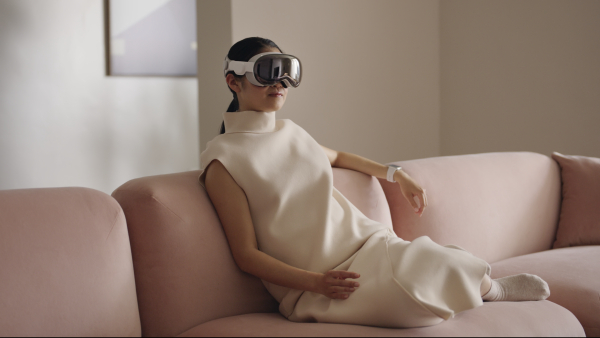
WWDC 2023 was arguably the most electric Apple event of the Tim Cook era. We saw a whole range of new tech on offer, including a new Mac Pro and the 15-inch MacBook Air.
But of course, the star of the show was the Apple Vision Pro headset. The long-awaited device made its debut at the event, and certainly didn't disappoint, offering a host of real-world uses that other VR headsets have lacked.
That's all possible thank to a raft of technical innovations. Apple say they've filed over 5,000 patents in relation to the headset, giving some idea of the sheer scale of the operation.
And I think a lot of those innovations will migrate over to other Apple devices in the future. That R1 chip, for example, which has been engineered to manage information from multiple sensors quickly and efficiently, could be re-purposed in modern cars.
Similarly, the micro-OLED display technology could enhance the viewing experience on iPhone and iPad, while advancements in Spatial Audio could revolutionise the experience of using Airpods.
There's one thing from the Apple Vision Pro which I'm really hoping comes to the iPhone range in the future, and that's Optical ID. I know, phones of yore had retina scanning capabilities and they weren't always great – see the BBC fooling a Samsung Galaxy S8 with a digital camera and a contact lens – but I think this will be different.
For starters, this is Apple. Without sounding like too much of a fan boy, their security is really brilliant. We're also a good few years on from that, and the more advanced technology employed here will hopefully be much harder to crack.
Getting that on iPhone would in turn make those devices safer, too. The current Face ID is good, but it's not perfect. The technology has been fooled by images, or even similar looking people – siblings for example, can sometimes gain access.
In an age where so much personal information is stored on our phones – banking, messages, health data, photos – it's only right to protect it in the best way possible. And I think Optical ID could be the best way to do that.







